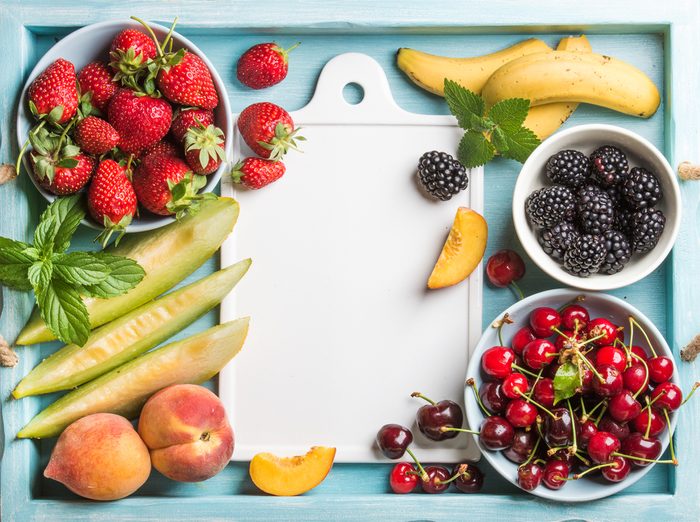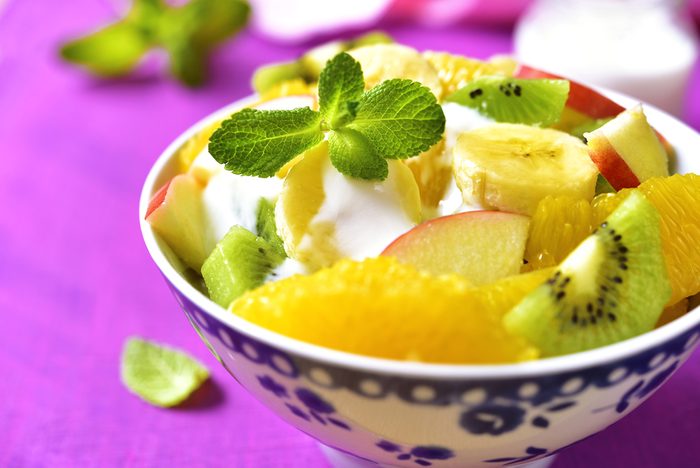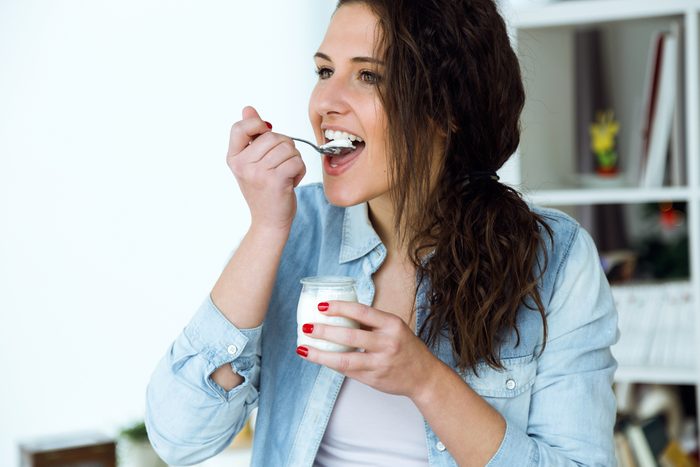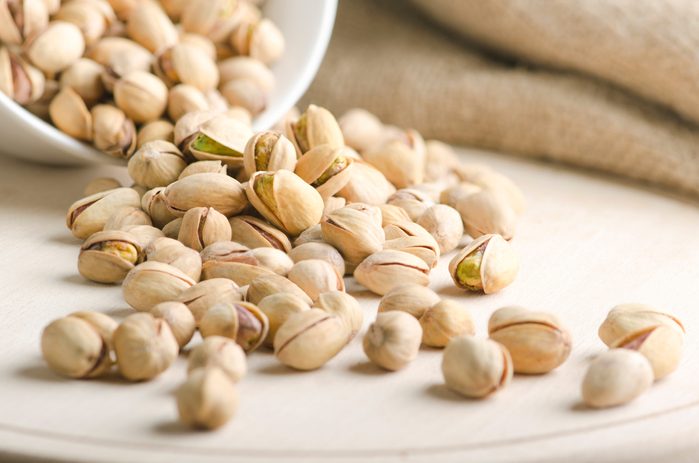
Brain Food: How Diet Affects Your Mental Health
One in five adults will experience mental illness during their lifetimes, according to the Canadian Mental Health Association. Better your odds by protecting your brain, starting with what you feed it.
Conditions like anxiety and depression are complicated and are connected to a number of factors, including genetics, personality and environment. But Grace Wong, a Calgary-based registered dietitian who specializes in mental health nutrition, says eating well can help your brain function at its best, which can help regulate how you feel. “We know that there’s an association between a high-quality diet and a lower prevalence of mental illness,” she explains, “but we actually haven’t seen a direct cause and effect for a specific nutrient.” You need a variety of nutrients for brain health. “When you’re eating different types of foods, you’re more likely to get all the building blocks you require for optimal brain function,” she says. Ready to get started? Here’s a road map to eating in a brain-boosting way that will help you manage your mental health.

On the Regular
Stick to three meals a day and one or two snacks, or have four or five smaller meals. “Our brains need a consistent and steady flow of fuel,” says Wong. When meals are eaten on an irregular basis, the result can be poor concentration, irritability and moodiness. As well, this kind of eating can cause you to undereat or overeat and lose touch with feelings of hunger and fullness, she explains. Since anxiety and depression can cause changes in appetite, it’s important to be connected to these feelings.

In the Mix
It’s important to eat a wide variety of foods, says Wong. For this reason, she recommends staying away from crash or restrictive diets. Carbs (for glucose), protein (for amino acids), healthy fats and vitamins are essential and work together, and you can only get what you need by eating different types of foods. The B-vitamins that are important for brain health are water soluble, which means that our bodies don’t store them, so we have to replenish them. The good news is that B vitamins are widely available. Try ground flaxseed for vitamin B1, soy or eggs for vitamin B12, bananas or tuna for vitamin B6, and edamame or spinach for vitamin B9.

Check, Please
Wong suggests that you check in with yourself on a regular basis to evaluate how you’re feeling about food and body issues. People living with depression or anxiety may not feel good about themselves some days. Many hope that changing their diets or bodies may change how they feel, so they’ll deprive themselves of nutrients, or they may feel unworthy and not practice self-care. Be compassionate and patient with yourself, and make a point of trying to eat at least one food you love to get through hump day.

Consider Your Caffeine
Drinking one or two cups of java is OK, but it’s important not to drink too much, says Wong. “Caffeine stimulates the brain and can give a short-term energy boost, but a high intake of caffeine can decrease the brain’s sensitivity to natural messengers.” says Wong. You could try swapping out one of your regular coffees or teas for a smoothie made with flaxseed oil (for omega-3s), Greek yogurt (for protein) and your favourite fruit (perhaps papaya, which is a good source of folate).

Sharing is Caring
Eating with others is one way to boost the quality of your diet, says Wong. Think of ways to make your meals more social. Host a potluck, invite your best friend out for a meal or start a work lunch club, where everyone takes turns bringing a dish to share. If some of your loved ones are housebound, make a point of visiting them to eat together. Wong notes that elderly people who don’t leave the house are at risk of nutrient deficiencies because they don’t have variety in their diets. When people eat alone, they may be less likely to eat a variety of foods because they lack the motivation to make an enjoyable meal or don’t make eating a priority.

It’s a Plan
Eating a varied and regular diet is easier if you have a plan. Think about what you can do to create a routine for meal planning, cooking and grocery shopping. But don’t worry, says Wong: There’s no need to make big changes all at once. “Don’t be too ambitious,” says she. “Start with what you have and slowly build on it.” Having a plan will also help when you feel less able to manage. “With depression, a lot of people lose their motivation to get up and engage with their day,” explains Wong. “With a major depressive disorder, people may not feel like they want to cook, grocery shop or eat, so they eat repetitive things. With anxiety, people may engage in emotional eating or may not eat at all as a way to cope when they feel overwhelmed.” If you are struggling, seek help. There’s no need to do this alone, says Wong.

Taste Test
Build your nourishment toolbox by trying out a new dish or ingredient today. For a snack, consider pistachios, which are packed with B vitamins (vitamin B6, folate and thiamine, to be exact) and high in the amino acid tryptophan, says Wong. Or give sunflower seeds, which are a source of vitamin B6 and amino acids, a go. You may already eat quinoa, which contains all of the essential amino acids, but how about amaranth? This versatile pseudo-cereal is high in protein and can be part of a salad, popped like popcorn or added to baked goods and soups. Or, try a new-to-you seafood. Mussels contain protein, thiamine and vitamin B12 and can be enjoyed steamed on their own, as part of a carb-rich pasta dish or in a stew.
